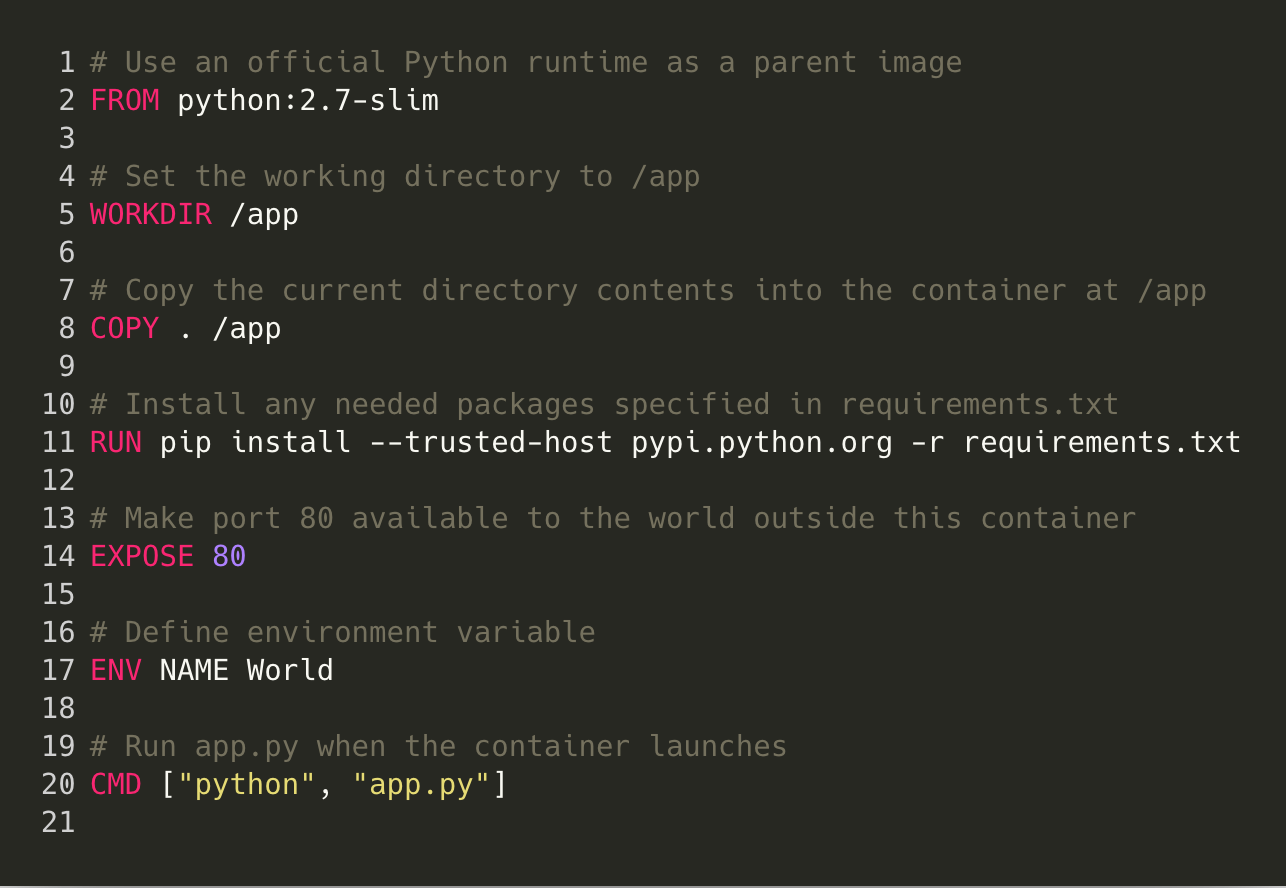Jul 20, 2015 docker-machine ip command gives the following error: docker-machine ip Error: Expected to get one or more machine names as arguments. If no arguments are specified, then it should display IP address of the currently selected machine. Docker machine is different from Docker engine and you can't use the two terms interchangeably. Here's how these two are different from each other. By 'Docker' we mean Docker Engine which is a client-server application made up of the Docker daemon, a REST API that specifies interfaces for interacting with the daemon, and a command line. Aug 28, 2014 To get IP address of a running docker container we should use “docker inspect” command and filter it out with filtering tools like awk etc. First we should know what is the name of docker you want to get IP address. Surendra-MacBook-Pro in. CONTAINER ID IMAGE COMMAND CREATED STATUS PORTS NAMES.
- Related Questions & Answers
- Selected Reading
We all know that we can run our application in a packaged environment called container using Docker. When you want containers to talk to each other, the network they create can be assumed to be a bridge network. Run the following command to get a list of networks.
Each network of containers has a subnet mask and can be used to distribute IP addresses to its containers. This also means that each container in the docker network is assigned an IP address. The default subnet for a docker network is 172.17.0.0/16.
Knowing these, we will now see the different methods that can be used to find out the IP address of a docker container in a network.
Using Docker inspect
Inspect command is used to get low level information about all the running docker containers in the host machine. It is shown in JSON format. We can use the format option with the command to get only a handful of important information.
Use the following commands below to get the container IP address using inspect.

First command is used to get a list of container IDs of all the running containers. This can be used on the second command to find the IP addresses.

In case of a single container
In case you only have a single container running, you can directly return the last container ID by parsing it
Using the bash
You can also get a container’s network ID by attaching a bash shell to the container. Use the commands below.
To start the bash of the container, use −
Once you are inside the bash, you can use the following command to access the IP address.
Exporting the environment variable of the container
For a particular docker container, you can export the environment variable. The following command returns the IP address of the last running container.
Using the IP address command
You can also access the IP address of the container by running the IP address command. Check out the command below.
Using the bashrc file
You can access the IP address of a particular container by creating your own custom command. You just need to add a method inside your bashrc file that would take an argument which will be the container ID and then return the IP address of that container. Check out the command below.
Paste the above code at the end of your ∽/.bashrc file.
Reload the file by using the command −
Now, get the container ID using the following command.
Copy the container ID and use it in the following command to get the container’s IP address.
In this article, we have seen six different ways to get a docker container’s IP address. However, the best and probably the easiest one is using the inspect command and this makes it one of the most widely used one too.
Update:
docker-machine-ipconfig builds on the approachI outline below, providing a more complete solution. In addition to setting the IP, it also disablesthe DHCP service running on the docker machine and fixes-up the certificates for you.
If you run multiple docker machines for different projects, you might find problems due to thedynamic assignments of IPs on startup.
Here’s a little-known trick to stop that happening.
Start up your machine, I’m using default as an example, and issue the following command:
Here I’m fixing default’s IP to 192.168.99.100. Stop, then start the machine, and it should be allocatedthe correct IP.
Now let’s create a new testy-mctestface machine:
Docker Machine Ip Ubuntu
Here I’m creating it with 4GB of memory and a 50Gb drive.
Start that machine up, and issue the following:
I’m assigning the IP 192.168.99.150 to this machine. Stop, start, and the run the following:
To regenerate the certs, something docker would complain about if you ran docker-machine env testy-mctestface.
Stop and start the machine one final time, and run docker-machine ls – you should see yournew machine listed, with it’s correct IP, and there shouldn’t be any errors in the far-right column.
This trick will allow you to set up custom /etc/hosts entries for your machines without having to worry about the IPs changing all the time.
Docker Machine Ip Default
Happy coding!